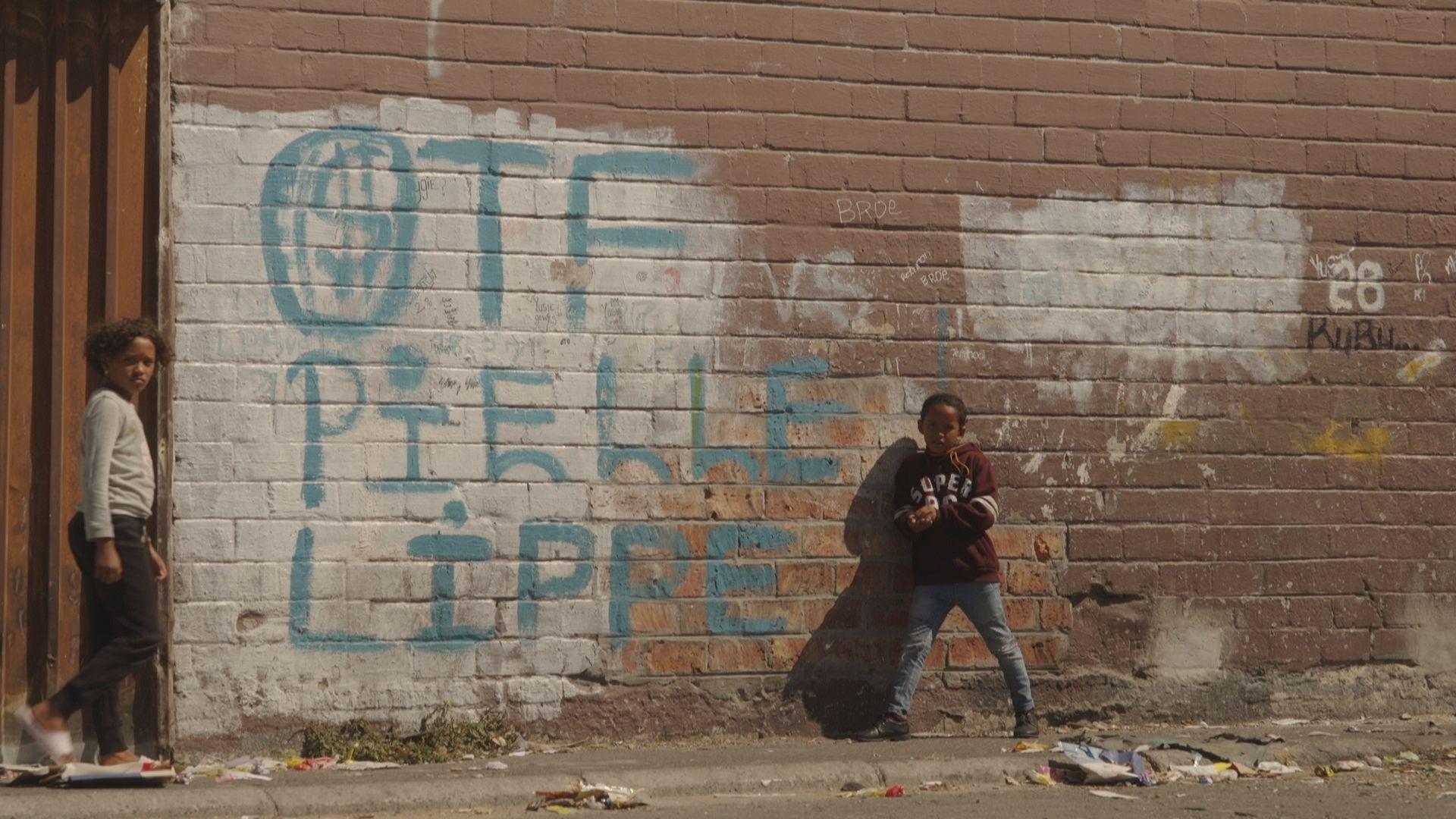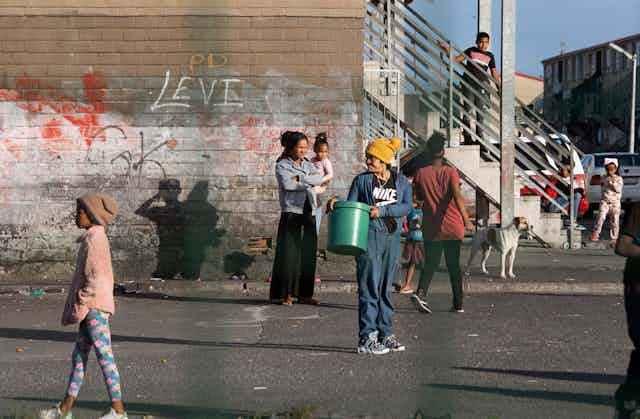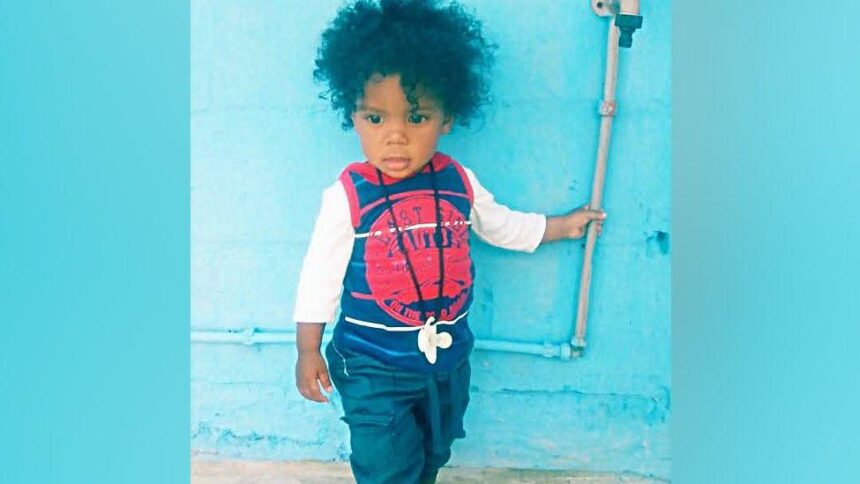Introduction
In Cape Town’s infamous Cape Flats gang violence continues to claim innocent lives, leaving communities devastated and families broken. The story of Devon Africa and Undean Koopman is tragically common. Four-year-old Davin, their son, was fatally shot in February, becoming an unintended victim of a crossfire between rival gangs. Just two years earlier, their daughter Kelly Amber, aged 12, met the same fate. These heartbreaking losses are stark reminders of the brutality gripping South Africa’s gang-ridden communities.

The Cape Flats: A Legacy of Apartheid
The Cape Flats area, where both killings occurred, is a grim legacy of apartheid. Non-white residents were forcibly relocated here decades ago, creating overcrowded and under-resourced communities. Today, these neighborhoods remain marginalized, breeding grounds for criminal networks that fill the void left by absent state services.
“There’s a whole history and generations of people born into these Cape Flats gang violence,” says Gareth Newham, head of the Justice and Violence Prevention Programme at the Institute for Security Studies in Johannesburg. With limited opportunities, gangs provide a twisted form of structure and support, offering financial aid, housing assistance, and even school fees for some families.
Police Struggle to Contain the Violence
The Western Cape province reports some of South Africa’s highest murder rates, overwhelmingly driven by gang violence. Despite government interventions — including a special task force created by President Cyril Ramaphosa in 2018 and a brief military deployment — the problem persists. Police face challenges not only from the gangs but also from community mistrust and corruption within their own ranks.
“Community members, even if opposed to gangs, don’t necessarily trust the police,” explains Newham. “They don’t know if police will respond, and if they do, whether the officers themselves are corrupt.”
The Vicious Cycle of Violence

In these dangerous neighborhoods, children as young as eight are recruited into gangs. Pastor Craven Engel, based in Hanover Park — another Cape Flats hotspot — works tirelessly to break this cycle. He mediates between warring gangs, striving to prevent violent outbursts and broker temporary ceasefires. “The drug culture is the largest economy here,” says Engel. “The substance creates unemployment, robbery, gang fights, and addiction. It’s at the heart of the crisis.”
Unfortunately, as Pastor Engel points out, policing alone can’t solve the problem. Arrested gang members are quickly replaced by younger recruits, fueling more violence over territory and turf.
Peace Efforts Amid Despair
Despite limited resources, Pastor Engel’s program, once supported by government funding, now relies heavily on charitable donations. His approach involves detection, interruption, and changing mindsets through rehabilitation. Reformed gang members like Glenn Hans join him, speaking directly to active gang leaders, urging them to choose peace.
“I was also in this game,” says Hans. “But once you decide to change, you can rebuild your life.”
But not everyone is willing to listen. One gang member chillingly responds: “The more we kill, the more ground we seize, and the more we can build.”
Seeking a Way Out: Stories of Redemption
One beacon of hope is Fernando “Nando” Johnston, a young member of the Mongrels gang, who has turned to Pastor Engel for help. “There are only two options: jail or death,” says Johnston. Determined to break free from this life, he has enrolled in Pastor Engel’s six- to 12-week rehabilitation program aimed at getting participants off drugs and into employment.
“You can build yourself up again,” Engel encourages him. “You’ll find work, earn your own money, and won’t need to hustle anymore.”
Johnston’s mother, Angeline April, hopes this will be her son’s second chance. “I always encourage him to change. I love him very much,” she says, holding back tears.

The Harsh Reality of Life in the Cape Flats
For many families like Devon Africa and Undean Koopman, hope remains elusive. Their home sits in the heart of a violent battlefield, where retaliation killings continue to escalate. The devastating loss of two children has left a permanent scar on their family.
“No one is coming to save us,” says Pastor Engel. “Not from overseas, not from local government. We must build resilience ourselves and create hope for our people, because politics has failed us.”
Conclusion
The Cape Flats remain a symbol of South Africa’s deep-rooted inequalities and systemic failures. While dedicated individuals like Pastor Engel and brave reformers like Johnston offer a glimmer of hope, real change demands long-term investment in education, economic opportunity, and community trust-building. Until then, families continue to mourn lost children, and communities live in daily fear, trapped between rival gangs and inadequate state protection.
For more updates on South Africa’s crime and justice challenges, visit our South Africa Crime Crisis Section.
External References
Image










